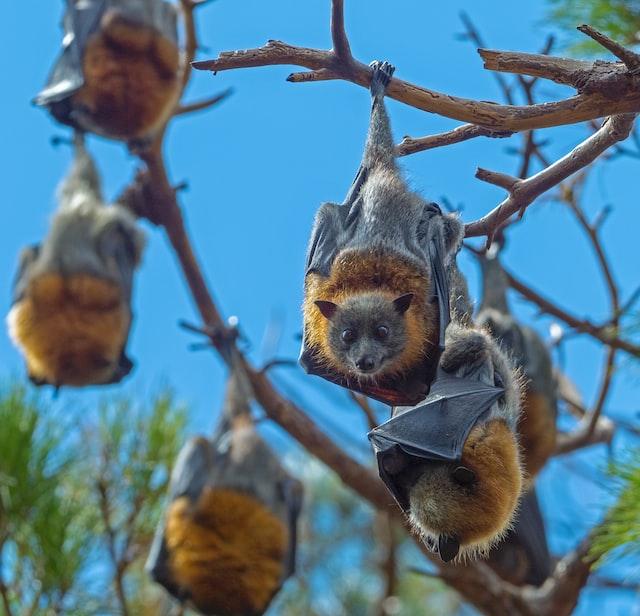
Bats play a crucial role in the environment, controlling pests and pollinating plans. However, it’s best if humans don’t come into contact with these creatures. While bats may look cute, they can spread nasty diseases — and humans may spread diseases right back to them. Learn about the diseases bats spread and one of the most common diseases affecting their population.
Histoplasmosis
When people come into contact with bird or bat feces, it can be bad news. Histoplasmosis is caused by a fungus that lives in soil and is often eaten by these flying animals. When spread to humans, the infection can be mild, like a common cold, or life threatening. Those who are severely immunocompromised or who are exposed to a large amount of the fungus should be especially careful to avoid this disease.
Symptoms are similar to that of a common cold until the disease progresses. In some of the worst cases, it has been mistaken for lung cancer, especially since the spots that show up in imaging scans can look identical to the disease. If histoplasmosis becomes severe, it needs to be treated with prescription antifungal medication.
Rabies
In Iowa, rabies infections are most common among wild animals like bats and skunks. However, you’re unlikely to get the disease from a bat unless you disturb it. Rabies is spread from an animal’s saliva, typically through bites but occasionally through contact with the animal.
Rabies symptoms start out similar to the flu, but they can progress into severe neurological symptoms, like delirium, hallucinations, and hydrophobia (fear of water). If an animal bites you, immediately wash the bite or wound with soap and water, then contact your doctor to see if you should get a rabies shot. To protect your pets from rabies, vaccinate them against the disease. This is also the best way to protect yourself, as it’s far more likely you’ll be bitten by a rabid dog than a rabid bat.
White-Nose Syndrome
This disease doesn’t spread to humans, but it’s causing serious harm to the bat population. White-nose syndrome kills bats during their hibernation cycle, and it has caused 70-80% declines in bat populations in the past three years in other states. Two of Iowa’s bat species are endangered, and with their role in the environment, it’s important to keep them protected. The cause of this disease is currently under investigation. Therefore, you should make sure not to disturb hibernating bats and to ensure that bats are safely and humanely removed if you find them in your home.
Pro-Staff, a company that offers Des Moines bat removal services, wants you to be aware of the diseases bats spread, as well as the ones impacting their population. If you believe you have bats in your home, call us at 515-279-7378 or contact us online for a free inspection.
